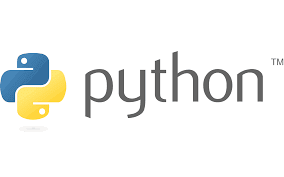Python language in a nutshell
Python is a high-level, interpreted programming language
that was created by Guido van Rossum in the late 1980s. It has since become one
of the most popular programming languages in the world, used for a wide range
of applications such as web development, data analysis, machine learning, and
more.
Key
features of Python:
Interpreted language: Python is an interpreted language,
which means that it doesn't need to be compiled before running. This makes it
easy to write and test code quickly.
Cross-platform: Python code can run on multiple
platforms, including Windows, Mac, and Linux.
Object-oriented: Python supports object-oriented
programming (OOP) concepts, allowing developers to create reusable and
maintainable code.
Large standard library: Python comes with a large
standard library that includes modules for common tasks such as working with
databases, networking, and more.
Third-party libraries: Python has a vibrant and
active community that has created thousands of third-party libraries for
everything from web development to machine learning.
Dynamically typed: Python is a dynamically typed
language, meaning that variable types are determined at runtime, making it more
flexible than statically typed languages.
Python's ease of use, versatility, and powerful libraries
have made it a go-to language for many developers, especially in the fields of
data science and machine learning.
Python
has several benefits that make it a popular choice for developers.
Easy to learn: Python's syntax is simple and easy to
learn, even for beginners. This makes it a great language for those who are new
to programming.
Large community: Python has a large and active
community of developers who contribute to the language and its libraries. This
means that there are plenty of resources available, including documentation,
tutorials, and forums.
Versatile: Python can be used for a wide range of
applications, including web development, data analysis, machine learning, and
more. This makes it a versatile language that can be applied to many different
fields.
Rapid prototyping: Python's ease of use and quick
development cycle make it ideal for rapid prototyping. This means that
developers can quickly build and test their ideas without spending a lot of
time on setup and configuration.
Third-party libraries: Python has a large and growing
collection of third-party libraries that extend its functionality. These
libraries cover a wide range of areas, including web development, scientific
computing, machine learning, and more.
Cross-platform: Python can run on multiple platforms,
including Windows, Mac, and Linux. This makes it easy to develop and deploy
applications across different environments.
Python's simplicity, versatility, and wide range of
libraries make it a great choice for developers of all levels and in many
different fields.
Python is a versatile language that can be used to build a
wide variety of projects, from simple scripts to complex applications.
Projects
that can be built with Python:
Web development: Python can be used to build web applications using popular frameworks like Django and Flask.
Data analysis: Python's libraries, such as Pandas,
NumPy, and Matplotlib, make it a popular choice for data analysis and
visualization.
Machine learning: Python's libraries, such as
TensorFlow, Keras, and PyTorch, make it a popular choice for machine learning
projects.
Desktop applications: Python can be used to build
desktop applications using frameworks like PyQt and wxPython.
Games: Python can be used to build games using
libraries like Pygame.
Automation: Python can be used to automate repetitive
tasks, such as web scraping, file handling, and data processing.
Internet of Things (IoT): Python can be used to build
applications for IoT devices, such as Raspberry Pi, Arduino, and other
microcontrollers.
Python's versatility and ease of use make it a great choice for a wide range of projects, and its libraries and frameworks make it easy to get started on new projects quickly.




Comments
Post a Comment